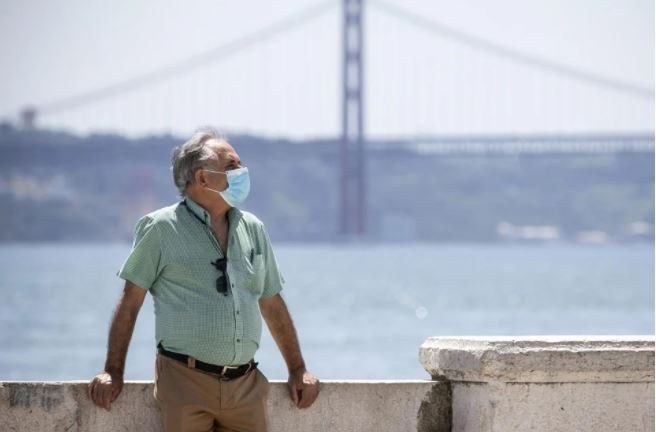Portugal has taken additional measures to counter the rapid rise in new coronavirus cases in the areas with the highest infection rate, the government decided on Thursday.
People who still want to enter a hotel or restaurant in the municipalities with the highest infection rate will have to present a certificate or a negative test.
"We continue to see a deterioration of the situation," government spokesperson Mariana Vieira da Silva said. The country now has 60 municipalities with a 'high' or 'very high' risk of infection. Last week there were still 45.
The curfew, which was introduced last Friday, remains in force in the high-risk areas. The measure mainly affects Lisbon and its surroundings, as well as the tourist region of Algarve.
Related News
- 'Fourth wave is already underway in Europe,' says Belgian expert
- Belgium can demand extra Covid test from travellers from Portugal, says Reynders
- Portugal and most of Spain colour red on European coronavirus map
In those same municipalities, people will now also have to present a negative coronavirus test, or prove that they have been fully vaccinated, if they want to enter the indoor parts of restaurants on Friday evening or at the weekend.
The same measure will apply every day in all hotels in the country.
On Wednesday and Thursday, Portugal exceeded the 3,000 new infections per day mark: the highest figures for the country since early February. The delta variant, first detected in India, accounts for about 90% of new cases.
In the meantime, the country turned completely red on the map of the European Centre for Disease Control (ECDC), which has consequences for travellers returning from those areas.
People returning from a red zone who do not have a vaccination or recovery certificate have to be tested immediately upon their return, and can only leave quarantine if the test is negative. Children under twelve do not have to be tested.
The Brussels Times

